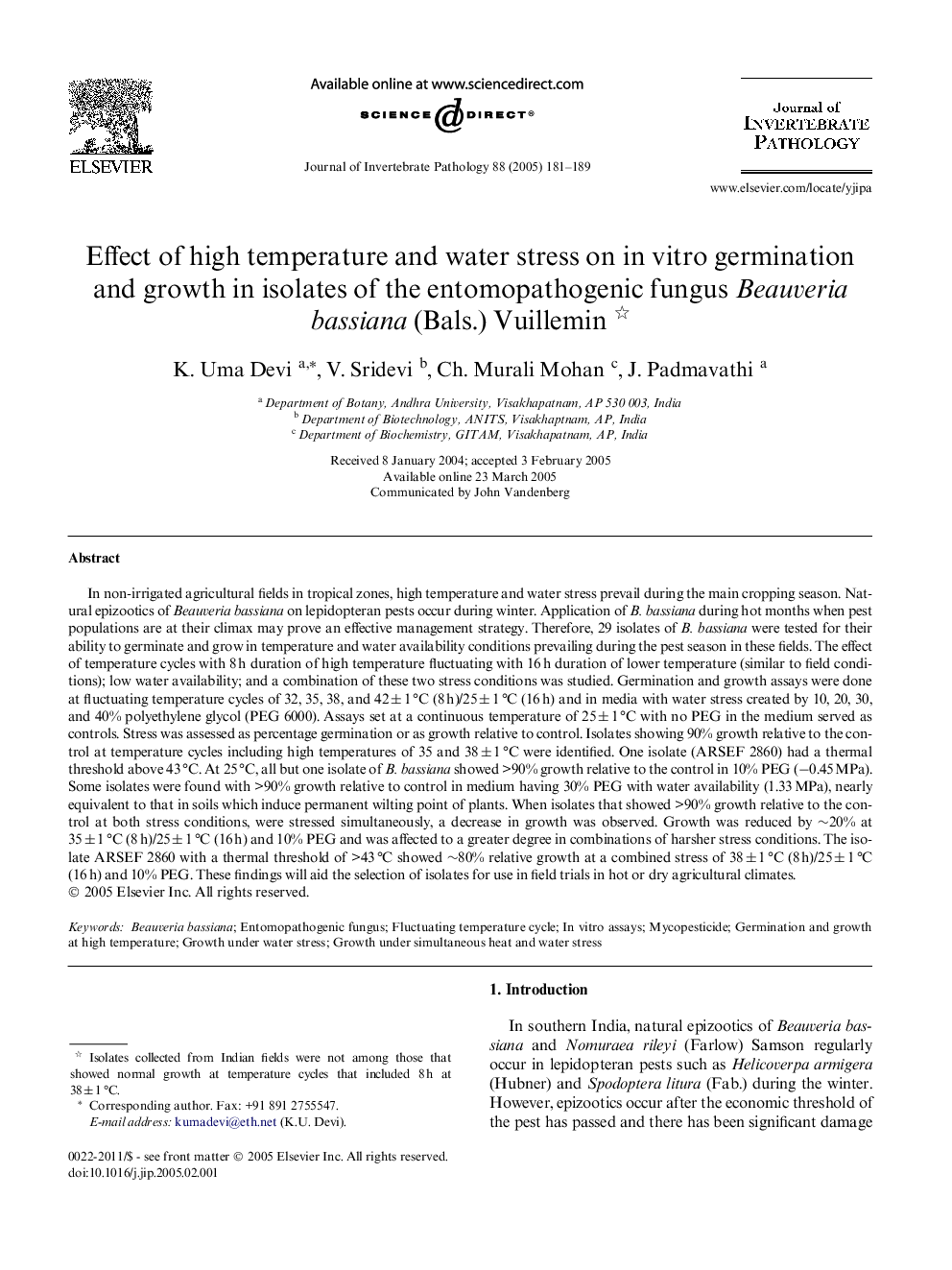| Article ID | Journal | Published Year | Pages | File Type |
|---|---|---|---|---|
| 9486560 | Journal of Invertebrate Pathology | 2005 | 9 Pages |
Abstract
In non-irrigated agricultural fields in tropical zones, high temperature and water stress prevail during the main cropping season. Natural epizootics of Beauveria bassiana on lepidopteran pests occur during winter. Application of B. bassiana during hot months when pest populations are at their climax may prove an effective management strategy. Therefore, 29 isolates of B. bassiana were tested for their ability to germinate and grow in temperature and water availability conditions prevailing during the pest season in these fields. The effect of temperature cycles with 8 h duration of high temperature fluctuating with 16 h duration of lower temperature (similar to field conditions); low water availability; and a combination of these two stress conditions was studied. Germination and growth assays were done at fluctuating temperature cycles of 32, 35, 38, and 42 ± 1 °C (8 h)/25 ± 1 °C (16 h) and in media with water stress created by 10, 20, 30, and 40% polyethylene glycol (PEG 6000). Assays set at a continuous temperature of 25 ± 1 °C with no PEG in the medium served as controls. Stress was assessed as percentage germination or as growth relative to control. Isolates showing 90% growth relative to the control at temperature cycles including high temperatures of 35 and 38 ± 1 °C were identified. One isolate (ARSEF 2860) had a thermal threshold above 43 °C. At 25 °C, all but one isolate of B. bassiana showed >90% growth relative to the control in 10% PEG (â0.45 MPa). Some isolates were found with >90% growth relative to control in medium having 30% PEG with water availability (1.33 MPa), nearly equivalent to that in soils which induce permanent wilting point of plants. When isolates that showed >90% growth relative to the control at both stress conditions, were stressed simultaneously, a decrease in growth was observed. Growth was reduced by â¼20% at 35 ± 1 °C (8 h)/25 ± 1 °C (16 h) and 10% PEG and was affected to a greater degree in combinations of harsher stress conditions. The isolate ARSEF 2860 with a thermal threshold of >43 °C showed â¼80% relative growth at a combined stress of 38 ± 1 °C (8 h)/25 ± 1 °C (16 h) and 10% PEG. These findings will aid the selection of isolates for use in field trials in hot or dry agricultural climates.
Related Topics
Life Sciences
Agricultural and Biological Sciences
Ecology, Evolution, Behavior and Systematics
Authors
K. Uma Devi, V. Sridevi, Ch. Murali Mohan, J. Padmavathi,
